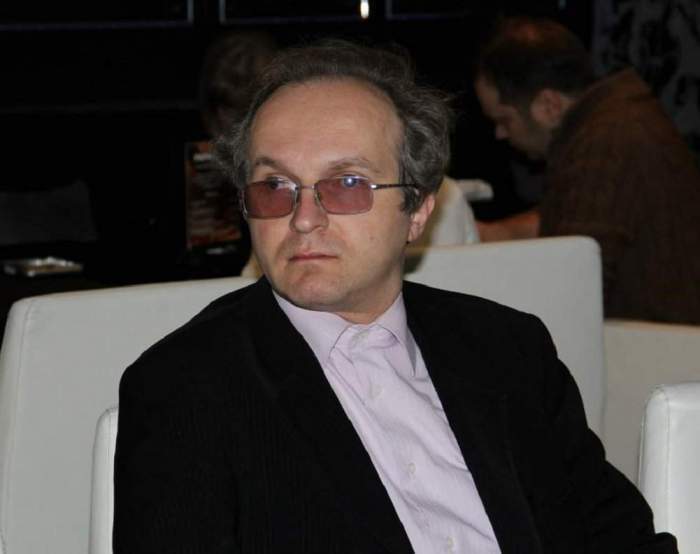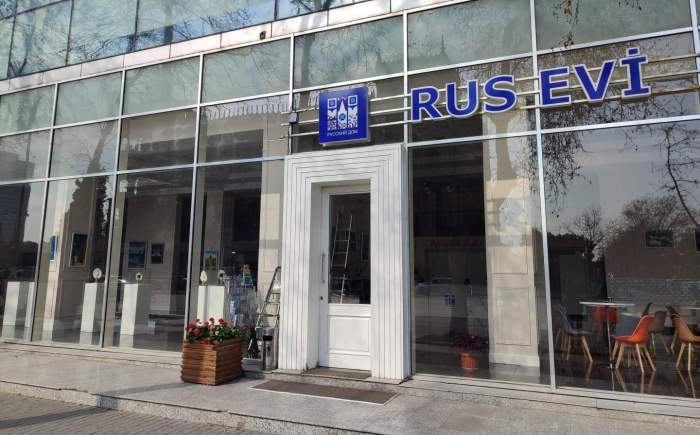By Samir Muradov
News.Az presents an interview with Ruslan Shevchenko, a political analyst from Moldova and Doctor of Historical Sciences.

– What are the main reasons behind the Moldovan authorities’ decision to close the “Russian House”? To what extent is this related to the violation of Moldovan airspace by Russian drones, and were there other prerequisites for this move?
– The Russian Center for Science and Culture (RCSC) in Moldova, often referred to as the “Russian House,” is a structure of Rossotrudnichestvo, whose representation in Moldova was opened in September 2002 under the then pro-Russian Communist Party government. In February 2009, during a renewed rapprochement between the Party of Communists of the Republic of Moldova (PCRM) and Russia, this representation officially inaugurated the RCSC in Chișinău. The location chosen for the center was evidently not accidental—Rossotrudnichestvo selected a building on a street named after Mihai Eminescu, the most prominent poet of Romania and Moldova. It seems that those who made this choice were well aware of the symbolic significance and attempted, at least in this way, to establish a connection between Moldova and Russia. This is despite the fact that Eminescu himself was not a supporter of Russia; in many of his publications, he accused Russia of occupying Moldova in 1812 and committing other crimes.
It should be noted that the Moldovan authorities had reasons to close the RCSC almost from the beginning of its operation. The center quickly turned into a parallel, legally established intelligence hub for Russian influence in Moldova, operating alongside the Russian Embassy. It provided a gathering place for both overt and covert pro-Russian agents in the country, where they could meet freely, discuss Russia’s strategies regarding Moldova, receive direct instructions, and secure funding for their projects. For this reason, several figures from Moldova’s cultural and intellectual circles—including the author of these lines—had been calling for the closure of this “nest of Russian provocateurs and traitors” since the 2010s. However, the Moldovan authorities hesitated to take decisive action against this organization for a long time.
After Russia’s invasion of Ukraine in February 2022, the RCSC’s activities significantly declined, but it continued to operate despite complaints from pro-Russian circles in Moldova that it had been “practically inactive” in recent years. The issue of closing the center had been long overdue, but Moldova’s leadership kept postponing the final decision, likely fearing an unforeseen and sharp escalation in Moldovan-Russian relations. The final straw was yet another violation of Moldovan airspace by Russian drones, most of which were striking targets in Ukraine.
– To what extent did Azerbaijan’s precedent of closing the “Russian House” influence Chișinău’s decision?
-The closure of the “Russian House” in Baku, the Azerbaijani counterpart of the RCSC in Moldova, is directly linked to the Moldovan authorities’ decision. They likely concluded that if Azerbaijan could take such measures, Moldova could as well. However, it should be noted that Moldova has not yet fully replicated Azerbaijan’s approach to curbing Russian influence centers.
The Azerbaijani authorities have long controlled the operations of the “Sputnik Azerbaijan” news agency, ensuring that its staff cannot engage in anti-state, pro-Russian propaganda within the country. Recently, in response to Azerbaijani government demands, the staff of “Sputnik Azerbaijan” was reduced from 43 employees to just one. Moldova has not yet reached this level of action. While the Moldovan Intelligence and Security Service (SIS) blocked the “Sputnik Moldova” website back in 2022, the site reappeared under a slightly modified name just hours later and continues to operate today. It regularly publishes defamatory and slanderous materials about Moldova while justifying or downplaying even the most egregious crimes committed by Russia in Ukraine and beyond.
Furthermore, the agency’s staff remains operational in Moldova. The only exception was the expulsion of the then-head of the Moldovan branch of “Sputnik,” Vladimir Denisov, in September 2023. Thus, Azerbaijan’s example of combating Russian influence remains highly relevant for Moldova, and the country still has much work to do in this regard.
– What political and diplomatic consequences might the closure of the “Russian House” have for Moldova-Russia relations? Could this lead to retaliatory measures from Moscow?
– Moldova-Russia relations are currently at such a stage that any serious retaliatory measures from Moscow—apart from routine protests from the Russian Foreign Ministry or statements from various Russian political and public figures—would provoke equally strong countermeasures from Moldova.
For instance, Moldova could ban all “pilgrimages” to Moscow by the clergy and ordinary believers of the Moldovan Orthodox Church, as well as visits by pro-Kremlin political and public figures from Moldova. At present, such trips are made via Yerevan or Istanbul. Additionally, Moldova could suspend the activities of its embassy in Russia indefinitely—an embassy that is already operating with only a handful of staff members.
As for Moldova-Russia trade and economic relations, their volume is already negligible. Even a complete cessation of economic ties with Russia would not significantly harm Moldova’s economy. Understanding this, the Russian leadership—previously quick to impose economic sanctions on Moldova over any unfavorable issue (gas debt, Transnistria, “anti-Russian actions” by the Moldovan government, etc.)—has remained silent this time. Moscow has refrained from making any direct threats, likely fearing further deterioration of its position among its remaining allies in Moldova.
– How will this decision affect cultural and educational programs implemented by Russia in Moldova? Could it impact the Moldovan diaspora in Russia or other areas of bilateral cooperation?
– The decision will only create temporary difficulties for the implementation of cultural and educational programs in Moldova—nothing more. These difficulties are temporary because the staff of Rossotrudnichestvo, who currently work at the RCSC, will simply relocate under the Russian Embassy’s roof or rent another building in Chișinău to continue their activities at a new location.
As for the Moldovan diaspora in Russia and other areas of Moldova-Russia cooperation, the decision will have no significant impact. The Russian authorities will once again attribute the development to the “Russophobic policies of the Moldovan government,” while reassuring that Moldovans living in Russia bear no responsibility for their home country’s actions. And that will be the end of the matter.
